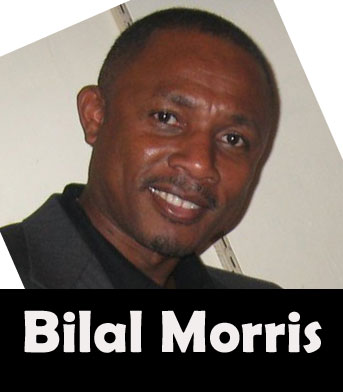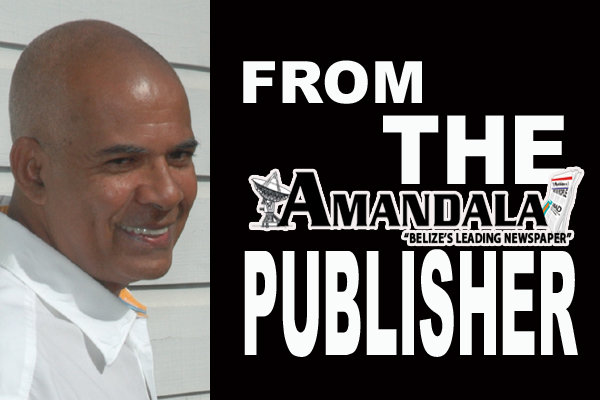Bilal Morris, a Belizean who currently resides in Los Angeles, recently e-mailed me several different video documentaries that he’s done. Bilal is doing important work. He’s chronicling the lives of Belizean superstars who have been living in the United States for three, four decades, such as softball’s Linda Lewis, cycling’s Johnito Miguel, and football’s Peru Olivera.
The title on one of the videos referred to one Alexander Marin telling the story of Lynam Agricultural College. To be truthful, I was not that interested. I practically forced myself to watch this video, but when I did, I enjoyed it immensely. In fact, the documentary fascinated and moved me, and it humbled me.

When I began high school at St. John’s College in 1959, there was where I first heard of Lynam, the reason being that a couple of my friends from Holy Redeemer Boys and S.J.C. itself who were having problems at Landivar, were either sent or made their way to Lynam. The school sounded like an exile from the city, where all the action was.
In fact, according to Mr. Marin, Lynam had been opened from 1953. He did not mention this, but I am sure the school was a project of the Landivar Jesuits. In 1953, British Honduras was still very much a British colony in every respect. I knew the Lynam principal to have been Fr. Urban Kramer, S. J., who was a real tough guy.
I had never realized what a visionary, great initiative Lynam truly was until I listened to Mr. Marin. (He was being interviewed by the man Leo Sanchez on the video.) As a writer, I like my profession and I take pride in it, but the video forced me to confront the fact that farming is a more critical, fundamental profession if you want to talk about core nation building.
Back there in the 1960s, when the Right Honorable George C. Price’s People’s United Party (PUP) was at the peak of its popularity and power, the talk on the government monopoly Radio Belize was all about agriculture, the so-called “green revolution,” and building the new nation of Belize through the production of food and cash crops.
Belize’s land was pristine back then in the Sixties when my generation was growing up. Our land had yet to be polluted by all the pesticides and herbicides and fertilizers and paraquat which have since been sprayed and spread around in The Jewel, God’s precious creation. Sometimes Tony Wright may sound excessively nostalgic, but when he begins talking about all the delicious fruits and vegetables and food crops Belize’s farmers produced back then, and I would say organically, he is right on point. I can’t produce any statistics to corroborate the following thesis, but in Belize we had a lot fewer cancer cases back then.
The key thing about Lynam was that the students grew their own food. In that sense, the institution was self-sustaining, or it appeared to be. Mr. Marin believes that it was politics which closed Lynam down in 1971, but I would have to assume that finances were a major factor. Finances are a major factor in most human endeavors.
After some years, the Lynam campus, which is located a few miles outside of Dangriga off the Hummingbird Highway, was made into a prison. Sometime in the 1990s, I think, the campus again became an agricultural school. It may have been the late Chiste Garcia, Minister of Agriculture in the United Democratic Party (UDP) government between 1993 and 1998, and Chiste was a highly enthusiastic agriculturalist, who spearheaded the return of Lynam to the world of agricultural science and studies. Mr. Marin discusses this on the video, but I wasn’t paying enough attention. My apologies.
My mind was wandering a lot, you see, as I was watching the video. Way back in the eighteenth and nineteenth centuries, the Spanish Crown used to sign treaties with the Baymen which allowed the settlers to cut logwood and hardwoods from the forests in the settlement of Belize, but which forbade the settlers from growing food crops. As a result of these restrictions on agriculture imposed by the Spanish, Belize became a place where a wealthy merchant class developed which imported foodstuffs from overseas.
When the nationalist revolution began in Belize in 1950, and the native politicians saw an agricultural future for the colony as it moved to self-rule, the powerful merchant lobby in Belize prevented a commitment to agriculture from becoming a national priority. The fact is that all over the world nations have farming on a pedestal: governments subsidize agriculture. This is hardly the case in Belize. The annual Agriculture Show in Belmopan was taken over by the merchants and importers decades ago. Belize remains a country with much beautiful, blessed land which does not feed its own population. What agriculture we do have is dominated by cash crops grown for export.
Food production in Belize is controlled by the Mennonite community, who use modern farming methods, which is to say, a lot of production chemicals, as do our people in the North and South who grow Belize’s export cash crops. The nations of the developed world, however, have gone big time organic in their food consciousness, because such food is healthier. Organically grown foods fetch high prices on the world market, but it is much easier to grow things using chemical aids.
The column is intended to get you interested in the subject. I am not an expert. I do believe, nevertheless, that Belize would have been a stronger nation if we had established control over our food production. You will see a bunch of fancy gadgets on American television, but the strength of the mighty America ultimately derives, and has always derived, from its agricultural production. America considers its farmers so important that America subsidizes its farmers.
For Belize to have had a Lynam, and for Belize then to have let Lynam slip away, was an unmitigated disaster. The Lynam story is never, ever discussed in Belize. I am grateful to Bilal, Leo Sanchez, and Alexander Marin for doing what has never been done before: they have begun to tell the story of Lynam. This is a story which must be told. There is so much we Belizeans can learn from the Lynam story. For me, every trail leads back to Bethuel Webster. But, that’s just the I.
Power to the people. Remember Danny. Fight for Belize.

